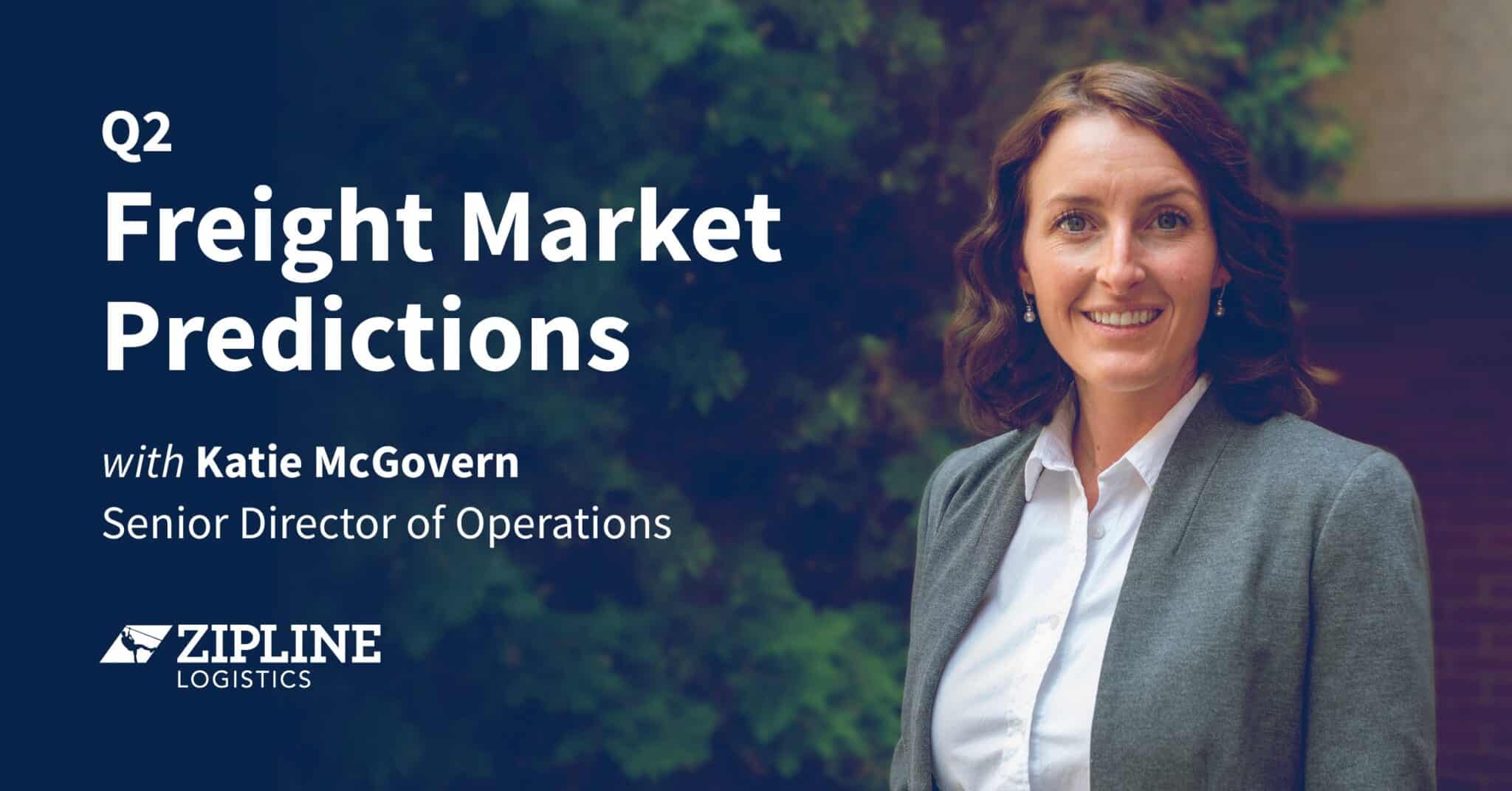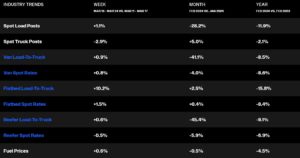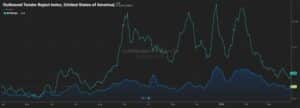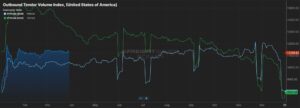
Welcome to the second quarter of 2024! Where the heck does time go?
Zipline Logistics is excited to spice up our usual quarterly update by tapping into the expertise of the one and only Katie McGovern, our Senior Director of Operations.
McGovern guest starred on the TRUCK YEAH! podcast to share her insights on the current state of the freight market and predict what may come for CPG shippers. Give it a listen or read on for more information.
Economic Factors
Inflation
Inflation rates have remained consistent over the last few months, now residing at 3.2%. This mark is close to the lowest level since early 2021.
Fuel Prices
Average fuel prices in the US have returned to their slow decline. In September, we reported an average diesel price of $4.58 per gallon and in January that figure fell to $3.87, returning close to the line we saw in summer of 2023. As of April 1, the price sits at $3.517.
Freight Market Predictions
“Right now, the market has definitely shifted in a positive direction for our shippers,” McGovern reported, “We are seeing relative stability for our customers and going into quarter two, I expect that to continue. I don’t see a large market disruption happening until later in the year. We’ll see the relative seasonality disruptions that come with produce season, but other than that, I expect Q2 to look largely as it has the past six months or so.”
During the peak of the COVID-19 pandemic, we saw heavy demand all across the domestic 48 United States when Americans began purchasing CPG products online more frequently, disrupting the supply chain.
As the world began opening back up again after curfews and shutdown orders lifted, demand stabilized and has remained relatively stable for the last two years. In addition to this, there are roughly 60,000 more operating motor carrier operating authorities in the market today than there were in 2019. This is due to the surge of carriers who entered the trucking market in response to high demand during the pandemic.
“They’re is definitely still an oversupply in the marketplace,” noted McGovern, “We’re seeing consumer demand at similar levels this year to how it was in 2023. We are also seeing carriers leave the marketplace and I’m sure that’s going to continue throughout the year. This is where we’ll start to see the market shift: spot rates are going to be more in line with what contract rates are. I don’t foresee them reaching any sort of equilibrium until the second half of 2024 and those lines probably won’t cross until 2025.”
McGovern’s advice to CPG shippers navigating the current market is to get in with partner carriers that are able to deliver service to you right now. Although that is not extremely hard to come by (because we’re seeing better service levels at lower rates), it’s very important to choose carriers that offer more than just a paper rate to you. Paper rates won’t move trucks when the market gets tougher and more carriers leave the market.
“Find a partner who is going to be able to do what they said they’re going to do for the rate they said they’re going to do it for,” advised McGovern, “Because when we see rejections come in and start to cause influx, that’s when we start to see the spot market change. And then all of a sudden, shippers are back to square one, trying to find someone to deliver something last minute.”
Rates, Rejections, & Volumes
National Average Dry Van Rate Per Mile
Dry van contract rates are falling around the same place they were during quarter four of 2021, while dry van spot rates are at a level not seen since the early months on the pandemic in 2020. As softer freight demand continues to prevail, average truckload rates continue to move lower.
The chart above depicts the national average dry van rate per mile in the United States. Derived from DAT.
Outbound Tender Rejection and Volume Index
Interestingly, the end of quarter one in 2024 saw an increase in net trucking authorities — the first increase seen since the middle of November 2023. Our current levels put us around the same number of trucking authorities as mid-2021 but are still great deal higher than the 2020 pre-pandemic levels.
The charts above depict national average outbound tender volumes and rejections in the United States. Derived from FreightWaves SONAR.
Navigating the Freight Market
Regardless of an ever-changing freight market, CPG suppliers focused on logistics partnerships rather than freight transactions will be the real winners in 2024. Believe it or not, there are still many aspects of your supply chain that you can control with industry experts on your side.
At Zipline Logistics, we care about each CPG brand’s unique business needs and tailor strategies to reduce overall logistics spend, optimize retail performance, and beat out the competition for shelf space. Zipline processes were built specifically to resolve the most critical logistics challenges faced by consumer goods brands shipping into retail.
We tailor strategies to reduce overall transportation spend, optimize retail performance, and beat out the competition for shelf space. 97% of our orders end up on retailer’s shelves such as Walmart, Costco, Bath & Body Works, Whole Foods, and Best Buy.
Don’t Miss the Next Freight Market Update
Want the inside scoop on breaking news and trends? Sign up for Zipline’s Retail Resources (AKA our monthly e-newsletter) so you don’t miss the next freight market update!


